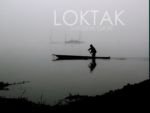Rinku Khumukcham
The arrival
of Hinduism to the Manipuri Society during the 17th Century is the
root of all this confused state of my mind. Various Manipuri scholars,
historians and social activists had interpreted the entry of the Hinduism in
their own views and perspectives. Some said it was the beginning of a new
Manipuri civilization but some said it was an invasion. As found at some of the
writings of social scientists - the arrival of Hinduism during the reign of
Miedingu Pamheiba (1709–1748)
had brought tremendous change in the religious practices of Manipur.
I am
neither a scholar nor a social scientists, I am simply an insignificant person
who always look forward to perform the rituals of being born to my parents. And
I am more in touch with my parents and my grandparents rather than those great
great grandparents.
In his
letter to his daughter Indira Gandhi, the first prime Minister of India wrote –
Gods comes as a product of the fear of mankind. If scientists have succeeded in
making a time travel machine, where we could go back to the prehistoric days,
all sorts of confusions would have been solved. Even though we don’t have the
opportunity to go back to the pass we could still culled the series of events
that might have happened during the days.
Scholars
say – early people had to struggle hard for their survival. Professor Ratan
Kumar Singh of the Manipur University while presenting his famous paper –“God in
Manipuri Literature” in the Oxford Round Table Conference during April month in
2011 vividly explain the life our ancestors. As according to his presentation
the early people were surrounded by hostile forces of nature and the environment.
Their living conditions, to a great extend were influenced by the forces beyond
their control. And they had a need to provide some explanations and accounts
for the good and the bad things which happened to them along with those of the
favourable and the adversaries. It is a very interesting fact that many of the
forces were often personified and given name and personalities. This phenomenon
was perhaps the first step for having beliefs and religious rituals. And consequently
a number of gods and goddess representing the various elemental forces and
qualities appeared.
The reason
for bringing up this piece of write up is to remind that religions and rituals
are the product of human civilization. Be it metiesm Sanamahi or the Hinduism or the Christianity – they are product of the
human civilization.
To my
perception my foremost ancestors might not have a god or a religion as they
were yet to begin a civilization. The great grandparents of my great
grandparents who were survived before the reign of Meidingu Pamheiba might have
been following a religion which was counterproductive of their ancestors. May
be after force conversions or willy-nilly adoption, my ancestors, who were born
after the reign of Meidingu Pamheiba have become Hindu. In course of time the
Hindu rituals finds its way to the veins of the Manipuri society and become a
part of it. The rich culture of the region which were flourished since Meitei
civilization became into existence began to establish in a new outlook. These
new traditions, along with the ancient indigenous traditions, were in existence
simultaneously in Manipuri Culture. To the words of Professor Ratan – It was in
some aspects we find a beautiful amalgamation of pre-Hinduism and Hinduism element
in Manipuri Culture.
The
rich heritage of Manipuri Culture and its recognition to the world community is
the product of the ancient indigenous traditions streams through the newly
invaded religion called Hindu. The Hindu that has been flourishing to the
society this erstwhile kingdom is in no way a curse but rather a boon.
Somewhat
I feel that traditional meiteism culture and the newly entered Hinduism adopted
by our ancestors as the two sides of the same coin. I see beauty and respect to
the rituals of Hindus and I find pride to the rituals of my Sanamahi religion.
Except
that I find guilty in identifying myself as Hindu while travelling to the
mainland country.

No comments:
Post a Comment